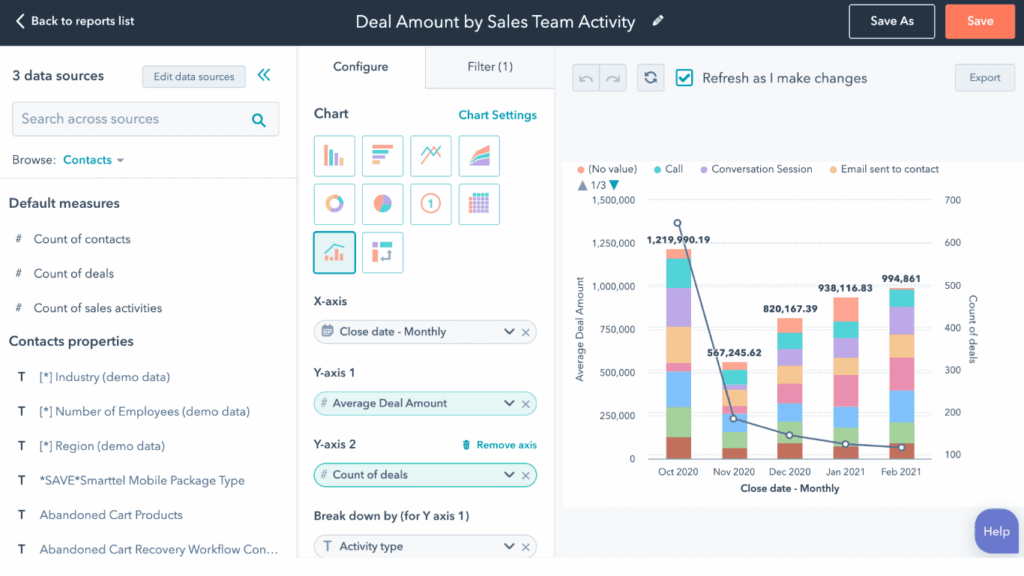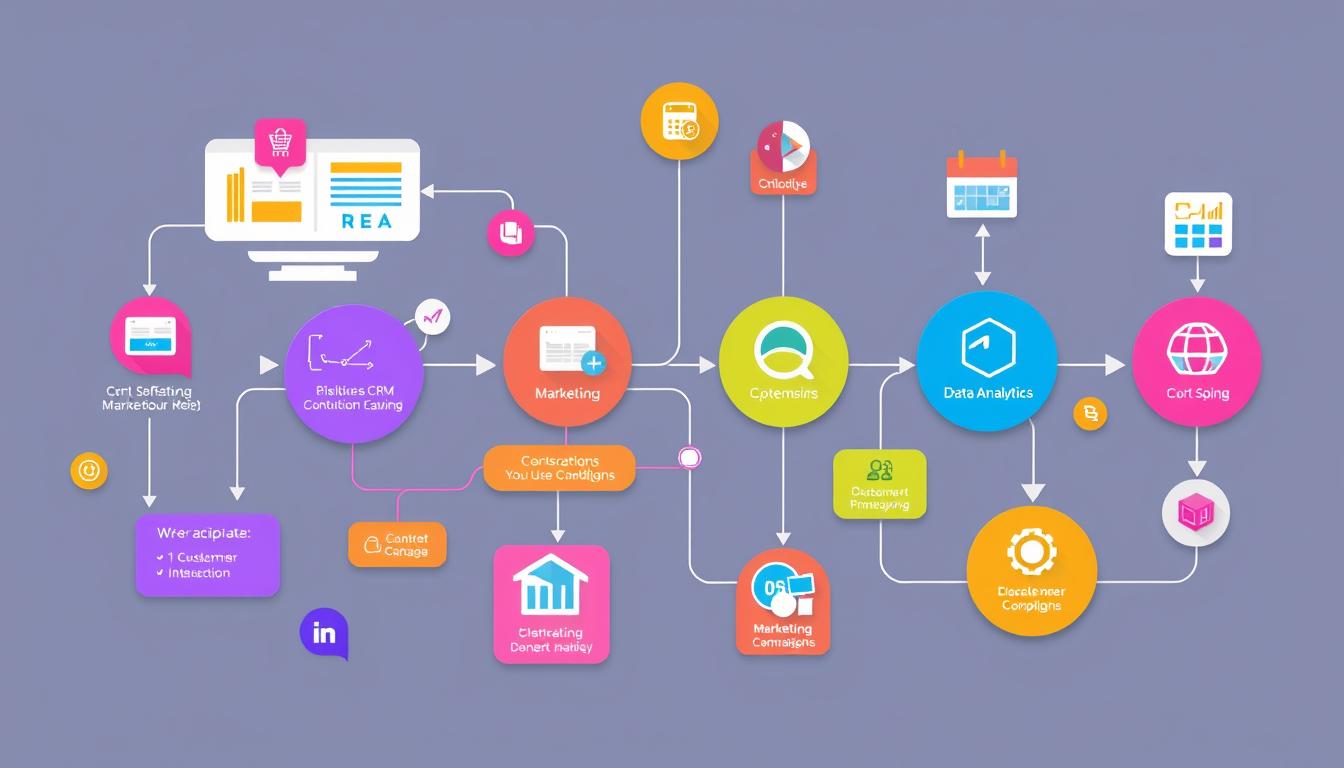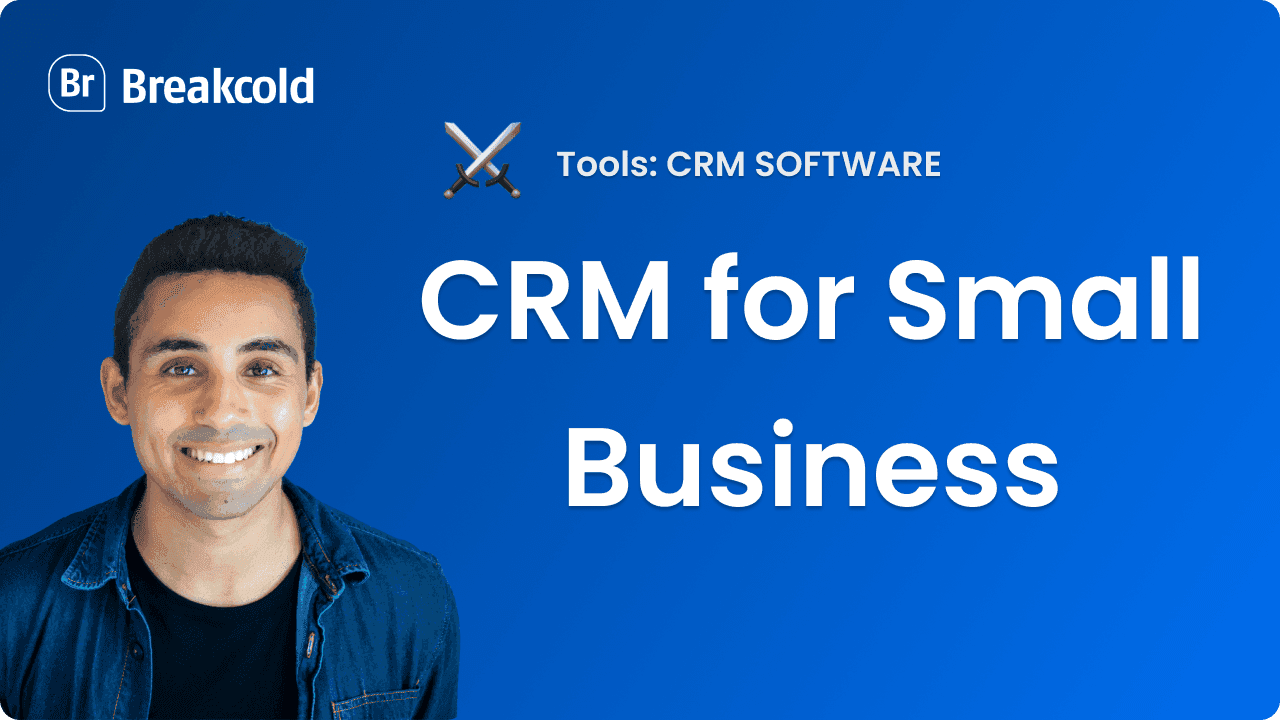Unlocking Growth: A Deep Dive into CRM Marketing Analytics Tools

Unveiling the Power of CRM Marketing Analytics Tools
In today’s hyper-competitive business landscape, understanding your customers is no longer a luxury; it’s a necessity. This is where Customer Relationship Management (CRM) marketing analytics tools come into play. They are the unsung heroes of modern marketing, providing the insights needed to make data-driven decisions, personalize customer experiences, and ultimately, drive revenue growth. This article will delve deep into the world of CRM marketing analytics tools, exploring their functionalities, benefits, and how they can revolutionize your marketing strategy.
What Exactly Are CRM Marketing Analytics Tools?
At their core, CRM marketing analytics tools are sophisticated software solutions designed to analyze the vast amounts of data generated by your CRM system. This data can include everything from customer demographics and purchase history to website activity and social media engagement. The tools then transform this raw data into actionable insights, helping marketers understand customer behavior, measure campaign performance, and optimize marketing efforts.
Think of it like this: your CRM is the treasure chest, and the analytics tools are the map and compass that help you find the gold. Without these tools, your CRM data remains untapped potential, a collection of numbers and names that don’t tell a story. With them, you can unlock the secrets of your customer base and tailor your marketing to resonate with their needs and preferences.
Key Features and Functionalities of CRM Marketing Analytics Tools
CRM marketing analytics tools boast a wide array of features, each designed to provide a specific type of insight. Here are some of the most common and valuable functionalities:
- Customer Segmentation: This is arguably the most fundamental function. Segmentation involves dividing your customer base into distinct groups based on shared characteristics, such as demographics, purchase history, or behavior. This allows you to tailor your marketing messages to specific segments, increasing their relevance and effectiveness.
- Campaign Performance Analysis: These tools provide detailed reports on the performance of your marketing campaigns, including metrics like click-through rates, conversion rates, and return on investment (ROI). This data helps you identify what’s working and what’s not, enabling you to optimize your campaigns for better results.
- Customer Lifetime Value (CLTV) Analysis: CLTV is a crucial metric that estimates the total revenue a customer will generate for your business over their entire relationship with you. Understanding CLTV allows you to prioritize your efforts and invest in strategies that maximize the value of your customer base.
- Predictive Analytics: Some advanced tools utilize predictive analytics to forecast future customer behavior, such as predicting churn or identifying potential upselling opportunities. This proactive approach allows you to address potential issues before they arise and capitalize on emerging opportunities.
- Reporting and Dashboards: These tools offer customizable dashboards and reports that visualize key metrics and insights. This makes it easy to monitor performance, track progress, and share findings with your team.
- Attribution Modeling: Attribution modeling helps you understand which marketing touchpoints are most effective in driving conversions. By analyzing the customer journey, you can allocate your marketing budget more efficiently and optimize your campaigns for maximum impact.
- Lead Scoring: Lead scoring helps you prioritize leads based on their likelihood to convert. By assigning scores to leads based on their behavior and demographics, you can focus your sales efforts on the most promising prospects.
Benefits of Using CRM Marketing Analytics Tools
The advantages of leveraging CRM marketing analytics tools are numerous and far-reaching. Here are some of the most significant benefits:
- Improved Customer Understanding: By analyzing customer data, you gain a deeper understanding of their needs, preferences, and behaviors. This allows you to create more targeted and personalized marketing campaigns that resonate with your audience.
- Enhanced Marketing ROI: By tracking campaign performance and identifying what’s working, you can optimize your marketing efforts and maximize your return on investment.
- Increased Sales and Revenue: By understanding your customers and targeting your marketing efforts more effectively, you can drive more sales and increase revenue.
- Better Decision-Making: Data-driven insights empower you to make informed decisions about your marketing strategy, resource allocation, and overall business direction.
- Improved Customer Retention: By understanding customer behavior and identifying potential churn risks, you can proactively address customer concerns and improve retention rates.
- Increased Efficiency: Automating tasks and streamlining processes through data-driven insights frees up your marketing team to focus on more strategic initiatives.
- Competitive Advantage: In today’s competitive landscape, those who understand their customers and leverage data to make informed decisions have a significant advantage.
Choosing the Right CRM Marketing Analytics Tool
Selecting the right CRM marketing analytics tool is crucial for success. With a plethora of options available, it’s important to choose a tool that aligns with your specific needs and business goals. Here are some factors to consider:
- Integration with Your CRM: Ensure the tool seamlessly integrates with your existing CRM system. This will ensure that data flows smoothly between the two systems and that you can access all the necessary information in one place.
- Features and Functionality: Evaluate the features and functionalities offered by the tool and determine if they meet your specific needs. Consider your goals, the types of data you want to analyze, and the insights you hope to gain.
- Ease of Use: Choose a tool that is user-friendly and easy to navigate. Consider the learning curve and the amount of training required to get your team up to speed.
- Scalability: Select a tool that can scale with your business as your data volume and marketing needs grow.
- Reporting and Visualization: Look for a tool that offers robust reporting and visualization capabilities. The ability to create custom dashboards and reports is essential for monitoring performance and sharing insights with your team.
- Customer Support: Ensure the vendor offers excellent customer support. This is crucial for resolving any issues or questions that may arise.
- Pricing: Consider the pricing structure and ensure it aligns with your budget. Some tools offer different pricing tiers based on the number of users, the amount of data, or the features offered.
- Reviews and Ratings: Research the tool and read reviews from other users. This can provide valuable insights into the tool’s strengths and weaknesses.
Top CRM Marketing Analytics Tools in the Market
The market for CRM marketing analytics tools is vast and diverse. Here are some of the leading options, each with its own strengths and weaknesses:
- HubSpot Marketing Hub: A popular choice for its all-in-one approach, HubSpot offers a comprehensive suite of marketing tools, including analytics, automation, and CRM capabilities. It’s known for its user-friendly interface and robust features.
- Salesforce Marketing Cloud: A powerful platform designed for enterprise-level marketing, Salesforce Marketing Cloud offers advanced analytics, personalization, and automation capabilities. It integrates seamlessly with the Salesforce CRM.
- Zoho CRM: A versatile and affordable option, Zoho CRM offers a range of features, including analytics, lead management, and automation. It’s a good choice for small to medium-sized businesses.
- Adobe Marketo Engage: A sophisticated platform for B2B marketing, Adobe Marketo Engage offers advanced analytics, lead nurturing, and automation capabilities. It’s known for its ability to personalize the customer experience.
- Pardot by Salesforce: Specifically designed for B2B marketing, Pardot offers lead nurturing, marketing automation, and sales alignment capabilities. It integrates with the Salesforce CRM.
- Freshsales: A CRM and sales automation platform that offers built-in analytics and reporting.
- Keap (formerly Infusionsoft): Keap is an all-in-one CRM, sales, and marketing automation platform designed for small businesses. It offers a range of features, including analytics, email marketing, and sales pipeline management.
This is not an exhaustive list, and many other excellent tools are available. The best tool for you will depend on your specific needs and requirements.
Implementing CRM Marketing Analytics: Best Practices
Once you’ve chosen a CRM marketing analytics tool, it’s time to implement it. Here are some best practices to ensure a successful implementation:
- Define Your Goals: Before you start, clearly define your goals and objectives. What do you hope to achieve with the tool? What key performance indicators (KPIs) will you track?
- Clean Your Data: Ensure your CRM data is clean, accurate, and up-to-date. Inaccurate data will lead to inaccurate insights.
- Train Your Team: Provide adequate training to your team on how to use the tool and interpret the data.
- Start Small: Don’t try to do everything at once. Start with a few key metrics and gradually expand your analysis as you become more comfortable with the tool.
- Monitor and Analyze Regularly: Regularly monitor your data and analyze your results. This will help you identify trends, patterns, and areas for improvement.
- Test and Iterate: Experiment with different strategies and tactics, and continuously iterate based on your results.
- Integrate with Other Tools: Integrate your CRM marketing analytics tool with other marketing tools, such as your email marketing platform and social media management tool, to gain a holistic view of your marketing efforts.
- Focus on Actionable Insights: Don’t get bogged down in data. Focus on generating actionable insights that you can use to improve your marketing strategy.
- Seek Expert Advice: If needed, consider hiring a consultant or agency to help you implement and optimize your CRM marketing analytics strategy.
The Future of CRM Marketing Analytics
The field of CRM marketing analytics is constantly evolving. As technology advances, we can expect to see even more sophisticated tools and features emerge. Here are some trends to watch:
- Artificial Intelligence (AI) and Machine Learning (ML): AI and ML are already playing a significant role in CRM marketing analytics, and their influence will continue to grow. AI-powered tools can automate tasks, predict customer behavior, and personalize marketing messages.
- Increased Personalization: Customers expect personalized experiences. CRM marketing analytics tools will continue to evolve to enable marketers to deliver highly personalized content and offers.
- Focus on Customer Experience (CX): The focus will shift from simply acquiring customers to providing exceptional customer experiences. Analytics tools will be used to understand and optimize every touchpoint in the customer journey.
- Data Privacy and Security: Data privacy and security will become increasingly important. Companies will need to prioritize data security and comply with relevant regulations, such as GDPR and CCPA.
- Integration of Data Sources: The ability to integrate data from various sources, such as social media, website analytics, and customer service interactions, will become increasingly important to gain a holistic view of the customer.
Conclusion: Embracing the Power of Data
CRM marketing analytics tools are essential for any business that wants to thrive in today’s data-driven world. By leveraging these tools, you can gain a deeper understanding of your customers, optimize your marketing efforts, and drive revenue growth. Choosing the right tool, implementing it effectively, and staying abreast of the latest trends will be crucial for success. Embrace the power of data and unlock the potential of your customer relationships.
The journey towards data-driven marketing may seem daunting, but the rewards are well worth the effort. By embracing CRM marketing analytics, you can transform your marketing from guesswork to a science, creating more meaningful connections with your customers and achieving sustainable business growth. So, take the leap, explore the possibilities, and start harnessing the power of data today.




